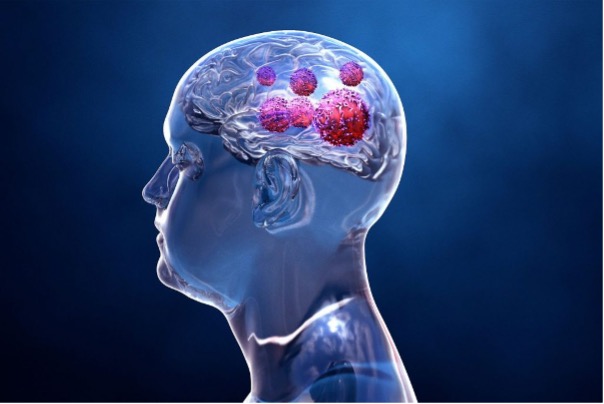
05 Oct Understanding the Symptoms of Brain Injuries After a Motorcycle Accident
Motorcycle accidents are more dangerous than car accidents since the rider often feels the direct impact on the accident due to the lack of a protective metal covering.
While you might be wearing a helmet, the head protection it offers may not be sufficient to completely protect the head. This is particularly true when the motorcyclist is involved in severe accidents. In some instances, you might even end up suffering a brain injury despite wearing a helmet.
But how do brain injuries due to a motorcycle accident occur? Let’s explore the causes, types, and symptoms of brain injuries from motorcycle accidents.
What is a Brain Injury?
A brain injury is a soft tissue injury to the brain. Such an injury, depending on severity, can even lead to death if not addressed properly. Other complications, such as a disability, may arise from a brain injury.
According to statistics, there are more than 4,500 fatalities as a result of motorcycle injuries in the US. Out of these 4,500 fatalities, 37% of them are usually caused by brain injuries. This makes brain injury a major cause of death in motorcycle-related accidents in the US.
Causes of Brain Injuries in Motorcycle Accidents
Brain injuries in motorcycle accidents are usually classified into two groups based on what causes the injury. The classification includes:
- Brain injury as a result of a blow
- Brain injury as a result of severe shaking
Brain Injury as a Result of a Blow
This is when you end up hitting your head either on a hard surface like a car, tree, or the road.
Brain Injury as a Result of Severe Shaking
A brain injury as a result of severe shaking usually happens when the motorcyclist falls or rolls on the ground. The brain moves around inside the skull, often leading to concussion.
Symptoms of Motorcycle-Related Brain Injuries
Some of the symptoms of a brain injury after a motorcycle accident include:
- Severe headache
- Swelling of some sections of the head
- Loss of bladder and bowel control
- Impaired vision and speech
- Fatigue
- Nausea
- Dizziness
When to See a Doctor
After being in a motorcycle accident where you hit your head, you should visit a doctor immediately for a proper checkup. A visit to a healthcare professional is absolutely vital if you’re experiencing the following symptoms.
- Confusion
- Loss of consciousness
- Disorientation
After diagnosis, your doctor can classify your head injury as mild, moderate, or severe. In case of a severe brain injury, you will require immediate medical attention, as it can cause more complications later on.
Complications from Severe Brain Injury
A brain injury can lead to the following complications:
- Disability
- Loss of ability to speak
- Mild or full blindness
- Loss of hearing capabilities
- Loss of bladder and bowel control
- Coma
Treatment for Brain Injuries
The treatment of a brain injury after a motorcycle crash includes surgery, medication, and rehabilitation.
1. Surgery
After being diagnosed with a severe brain injury, your doctor might require you to undergo brain surgery to prevent further damage. A brain surgery will help repair the injured soft tissues or release pressure from your brain.
2. Medication
In some instances where the brain injury after a motorcycle accident is not severe to the extent of requiring surgery, your doctor will require you to take some medication. These medications might include diuretics and anti-seizure medicine.
3. Rehabilitation
Depending on the severity of the brain injury, your doctor might propose rehabilitation, especially if you’ve lost some bodily functions.
For example, rehabilitation can help if you can’t talk, walk, eat, hear, or control your bowel or bladder.
———————————————-
The information on MedicalResearch.com is provided for educational purposes only, and is in no way intended to diagnose, cure, or treat any medical or other condition.
Some links may be sponsored. Products above are not warranted or endorsed.
Always seek the advice of your physician or other qualified health and ask your doctor any questions you may have regarding a medical condition. In addition to all other limitations and disclaimers in this agreement, service provider and its third party providers disclaim any liability or loss in connection with the content provided on this website.
Last Updated on October 5, 2024 by Marie Benz MD FAAD
